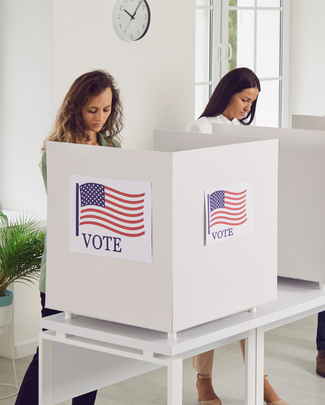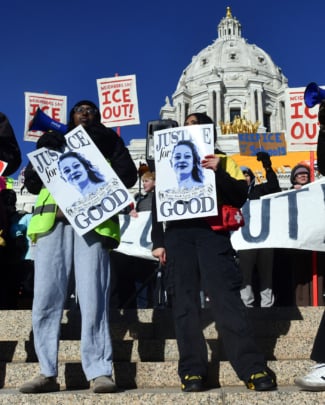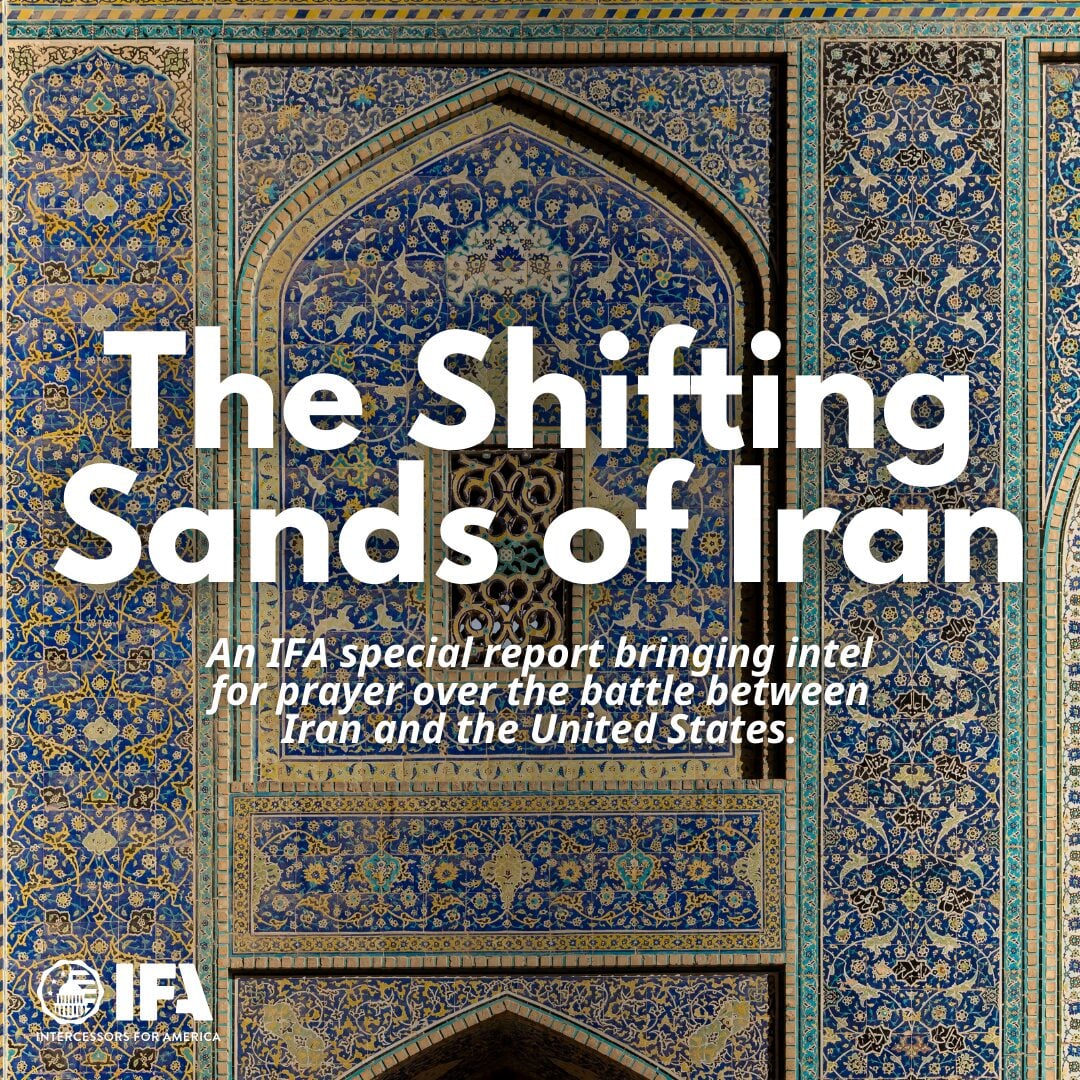THE DANGERS OF D.C. BECOMING A STATE
ARE YOU LONELY AND ISOLATED ON YOUR INTERCESSORY JOURNEY? HERE’S HELP
IFA TAKES ACTION TO PROTECT INTERCESSORS
BLACK LEADERS DEFEND VOTER ID
3RD LARGEST DENOMINATION FACES SCHISM?
THE DANGERS OF D.C. BECOMING A STATE
Do you know the historical reason for the District of Columbia existing outside of the borders of any one state? Learn about the reasons D.C. statehood is a bad idea and then send a message that you oppose D.C. statehood:
. . . In June 1783, the Confederation Congress was meeting in what is now Independence Hall in Philadelphia. Continental soldiers surrounded the building demanding back pay. They were peaceful, but the intimidation was plain.
Congress asked Pennsylvania authorities to clear away the demonstrators. Pennsylvania authorities refused to do so. Congress accordingly left Philadelphia for Princeton, New Jersey, thereby making that town the national capital for a short time.
This incident confirmed the American Founders in their opinion that the national capital should not be at the mercy of any state. The Founders also knew that in European countries, national office holders could be held hostage by mobs that local authorities were unwilling, or unable, to control.
In July 1783, therefore, Congress began to lay plans for a capital district outside of any state, and under direct federal authority. . . .
When the Constitution’s framers met in convention in 1787, they accomplished this by adding the Enclave Clause to the document. The Enclave Clause reads in part as follows:
“The Congress shall have Power … To exercise exclusive Legislation in all Cases whatsoever, over such District (not exceeding ten Miles square) as may, by Cession of particular States, and the Acceptance of Congress, become the Seat of the Government of the United States …”
Securing the national capital from capture was one reason for locating it outside the boundaries of any state. . . .
The founding generation believed that for republican government to survive, decision makers (including voters) should be free from the undue influence of others. They had to be able to make decisions freely, based on full consideration of the evidence. Decisions made by people heavily dependent on others would reflect merely the will of the masters. It was like giving the masters extra votes.
Many participants in the debate over the Constitution expressed concern that residents of the capital district, who would consist largely of government employees and their families, would reflect solely the interests of the government upon which they were dependent. They did not want dependents of the federal government unduly influencing state or national elections.
The Founders also recognized that denying the vote to residents of the capital district would not leave them without influence. On the contrary, prior history showed that those residents would have an outsize influence—partly by reason of their proximity to federal institutions and partly because many would be government officials or employees. . . .
The Constitution reflected all these concerns by making no provision for the capital district having seats in Congress or participating in presidential elections.
In 1788, the Maryland legislature formally offered to cede to the federal government jurisdiction over land for a capital district. Virginia did so the following year. In 1791, Congress accepted Maryland’s and Virginia’s offers. The District of Columbia was established formally 10 years later. The federal government later returned Virginia’s portion to that state, so all of what is now the District of Columbia is former Maryland territory.
In 1960, Congress proposed the 23rd Amendment, which the states ratified the following year. It permitted residents of the District of Columbia to choose three presidential electors. In 1973, Congress passed the Home Rule Act, permitting local self-government for the District.
As currently proposed, the new state would consist of all of D.C. except tiny strips of territory remaining under federal control. It would be called “Washington, Douglas Commonwealth”—presumably meaning the City of Washington in the Commonwealth of Douglas. Many of the arguments over this proposal center on such questions as whether the District is large or self-sustaining enough to be a state. . . .
As demonstrated by the 1783 incident in Philadelphia, D.C. statehood would put the federal government at the mercy of local state officials. “Douglas Commonwealth” officials could refuse to restrain rioters threatening federal institutions. . . .
One obvious tactic might be for Douglas police to harass members of Congress with traffic tickets until Congress passed a particular law or granted the Commonwealth more federal aid.
The terms of Maryland’s 1788 offer of cession also present objections to D.C. statehood. The Constitution authorizes Congress to assume jurisdiction over a portion of a state only if the state cedes it. As another part of the Enclave Clause makes clear, cession represents the consent of the state to loss of some of its territory.
But Maryland’s consent to cession, as well as Congress’s acceptance, was clearly based on the land being used as a national capital. The 1788 Maryland law provides that cession is to be of a “district in this State not exceeding ten miles square, which Congress may fix upon and accept for the seat of Government of the United States.” Maryland did not consent to the creation of another state out of its territory. . . .
Maryland’s consent was effective for creating a federal “enclave” to be used as a national capital, but not effective for creating a new state. Turning all or part of D.C. into a state would require either a new agreement with Maryland, or a constitutional amendment.
Another objection arises from the results of the 23rd Amendment. Those results have vindicated fully the Founders’ concerns about allowing District residents to vote in federal elections. As the record shows, in presidential contests D.C. voters do not seriously weigh the merits or demerits of presidential candidates. The District is a dependency of the federal government, and its electorate invariably votes for the party that offers more government—the Democrats. D.C. residents have cast ballots in 15 presidential elections. They have voted the same way each time, and by huge margins: In 2020, Joe Biden took 92 percent of their vote. . . .
The most rabid Democrat partisan—suggest that rather than admitting the District as a state, we should be discussing repeal of the 23rd Amendment. . . .
In 2012, the Washington Post published a column by a long-time D.C. journalist. Its title tells you all you need to know about government there: “How D.C. became a District of Corruption.” America does not need more corruption in its national councils. . . .
Send a message to your lawmakers about D.C. statehood. Click the TAKE ACTION image. If you have already sent a message, please share this article with others.
(Excerpt from The Epoch Times. Article by Rob Natelson. Photo Credit: Unsplash.)
Partner with Us
Intercessors for America is the trusted resource for millions of people across the United States committed to praying for our nation. If you have benefited from IFA's resources and community, please consider joining us as a monthly support partner. As a 501(c)3 organization, it's through your support that all this possible.


We use cookies to ensure that we give you the best experience on our website. If you continue to use this site we will assume that you are happy with it. Privacy Policy





Comments
This article has helped me understand the importance of our nation’s capitol not becoming a state. I’m strongly opposed to it. We, citizens of the USA, certainly don’t need more confusion and dishonesty from government officials.
I totally don’t believe in DC becoming a state of people who live elsewhere and only work there! Thank you Lord for not allowing this to happen!
Doug
Thank you for this informative article. I took action to make my feelings against statehood for DC known.
I took action and made my voice heard. I oppose D.C. becoming a state also.
Every public and private school should make it a priority to teach the United States Constitution, therefore all inalienable rights from God would be restored to individuals, to every sphere of influence in this country, because then our future leaders of America would graduate from high school with a sound knowledge of the Biblical world view that is clearly stated in the original United States Constitution. Imagine what America would become with prayer and Bible study restored as part of the original curriculum of our schools. There would be no need for private Christian schools: all young children and high school students would constitutionally have the correct curriculum that was originally intended by our forefathers. What is wrong with teaching two laws which all of the Ten Commandments are based on: LOVE THE LORD WITH ALL YOUR HEART, SOUL, AND MIND AND LOVE YOUR NEIGHBOR AS YOURSELF? THANK YOU FOR THIS EDUCATIONAL PIECE REGARDING THE DANGERS OF D.C. BECOMING A STATE!
I just want my voice to be heard.
I oppose D.C. statehood.
I appreciate this information. The wisdom used in setting up the District of Columbia should not be ignored. Let God’s people be AWAKE while others are woke. Let us be found praying and working for truth and righteousness in the power of Holy Spirit and in the name of Jesus.